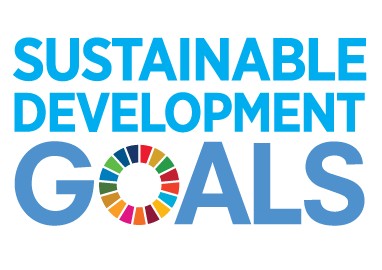Waterschool and European Policy Strategies
The European Union and the United Nations are pursuing a series of objectives, strategies and programs related to water schools.
EU Action Plan on Childhood Obesity 2014-2020
The European Commission reacted to the challenge of overweight and obesity by adopting the EU Action Plan on Childhood Obesity 2014-2020. Goal is to contribute to halting the rise in overweight and obesity in children and young people by 2020. The action plan focuses on children, because “by learning and adopting healthy habits when young, the chance that such habits will be sustained into adulthood is greatly increased”.
The action plan encourages schools and pre-schools “to limit access to … less healthy food options” and to create “environments in which health and wellbeing are promoted and the healthy option becomes the easy option”. And it is mentioned that schools need to provide children and young people with access to free drinking water as an alternative to sugar-sweetened beverages.
More information: https://ec.europa.eu/health/sites/health/files/nutrition_physical_activity/docs/childhoodobesity_actionplan_2014_2020_en.pdf
EU Drinking Water Directive
The goal of the EU Drinking Water Directive is to ensure safe and clean water for human use inside of all EU member states. An important reason for creating the Water Directive was, that water resources are becoming endangered by pollution. The Directive laid down the essential water quality standards (microbiological, chemical and indicator parameters) at EU level. Drinking water quality has to be reported to the European Commission every three years. The Directive also requires providing regular information to consumers.
The updated EU-Drinking Water Directive (2019) will improve the quality of drinking water, the access to it as well as provide better information to citizens. This will be contributing to the environmental goals of reducing unnecessary plastic use and limiting the EU's carbon footprint, as well as to the achievement of the Sustainable Development Goals.
More information: http://ec.europa.eu/environment/water/water-drink/legislation_en.html and http://ec.europa.eu/environment/water/water-drink/review_en.html
EU Plastic Strategy
The European Strategy for Plastics in a Circular Economy was adopted in January 2018. The Commission says that “The Strategy is part of Europe's transition towards a circular economy, and will also contribute to reaching the Sustainable Development Goals, the global climate commitments and the EU's industrial policy objectives”. Generally, the strategy addresses the answer of three main questions: how to reduce the use of fossil fuels for the production of plastics; how to increase the recycling rate of plastics; and how to minimize plastic pollution, especially in the seas and oceans. Although it is an internal EU document, the strategy has a great impact on more responsible approaches of individual countries, global political processes and transformation to sustainable supply chains.
WATERSCHOOL project directly supports the strategy by encouraging initiatives for reducing plastic bottles use and developing teaching materials to educate children how to protect the environment from plastic pollution.
More information: https://ec.europa.eu/commission/news/eu-plastics-strategy-2018-nov-20_en and http://ec.europa.eu/environment/circular-economy/pdf/plastics-strategy-brochure.pdf
Sustainable Development Goals

The 2030 Agenda for Sustainable Development, adopted by all United Nations Member States in 2015, provides a shared blueprint for peace and prosperity for people and the planet, now and into the future. At its heart are the 17 Sustainable Development Goals (SDGs), which are an urgent call for action by all countries - developed and developing - in a global partnership. The project WATERSCHOOL contributes to several of these 17 SDGs, for example:
Goal 3: Good Health and Well-Being - Ensuring healthy lives and promoting the well-being at all ages is essential to sustainable development. This concerns not only people of the South but also children and kids in Europe and the absolute need for healthier food and drinking, promoted by WATERSCHOOLS.
Goal 11: Sustainable Cities and Communities - With the number of people living within cities projected to rise to 5 billion people by 2030, it’s important that efficient urban planning and management practices are in place to deal with the challenges brought by urbanization. Quality of drinking water and reduce of waste are essential issues, focused by the WATERSCHOOL project.
Goal 12: Responsible consumption and production - Sustainable consumption and production is about promoting resource and energy efficiency, sustainable infrastructure, and providing access to basic services, green and decent jobs and a better quality of life for all. A central sub-goal is the availability and use of fresh drinking water, also for children in Europe – a main intention of WATERSCHOOL project.
More information: https://www.un.org/sustainabledevelopment/sustainable-development-goals
Paris Agreement on climate change
Reducing the consumption of bottles water, from 100 to 88 litres per year by 2050, will reduce European greenhouse gas emissions by 1,2 million tonnes CO2.
WATERSCHOOL project encourages schools to avoid rsp. reduce plastic bottles.
More information: European Commission, Factsheet Saver drinking water for all Europeans


